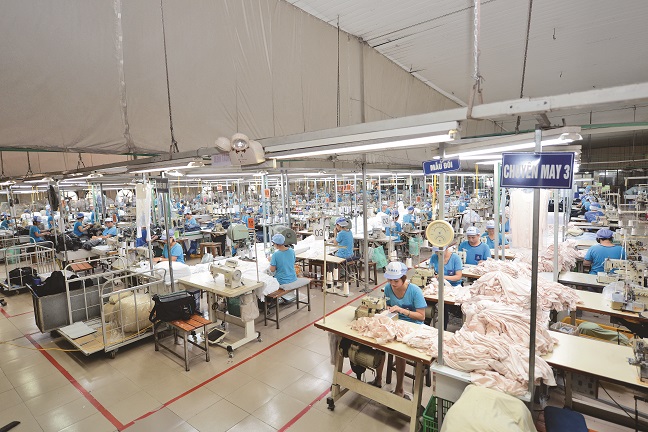
Textiles, furniture and toys exported to the EU must control chemicals at the request of importers.
Sweden and seven other European countries, Belgium, Denmark, Finland, Luxemburg, Norway, Spain, and Austria, have signed a letter calling on the European Commission (EC) to set a time limit for hazardous chemicals. must be phased out from consumer products.
This information has just been confirmed by the Vietnam Trade Office in Sweden.
Sweden and these countries emphasize that products such as baby products, toys, cosmetics, furniture, and clothing are still allowed to contain chemicals that can be harmful to health, in particular. are fetuses and children.
Therefore, the proposal for new regulations related to chemical control, which the Commission intends to introduce in early 2023, should include a broad ban on these substances to ensure the most complete protection.
They also propose to give Member States an expanded right to take EU-level measures against hazardous substances.
With the push of Sweden and other member states, it is expected that the deadline for the elimination of dangerous substances in some consumer products will be included in the new regulation related to the control of chemicals that is expected to be approved. over the beginning of next year, which is 2023.
"Enterprises producing consumer goods for export to Nordic countries in particular and the EU in general need to pay attention to make reasonable adjustments," the Vietnam Trade Office in Sweden stated.
At the same time, five Nordic countries, Iceland, Norway, Sweden, Denmark and Finland, also introduced new Nordic eco-label regulations for imported textiles. The Nordic Ecolabel is based on the criteria of the EU Textile Strategy.
The Nordic ecolabel agency is now making more ambitious requirements for textile manufacturers because change in the industry is urgently needed. Currently, both the EU and other Nordic countries such as Norway and Iceland require the textile industry to develop in a more sustainable and circular manner.
Specifically, to avoid overproduction, the Nordic eco-label prohibits burning or burying unsold clothing. In addition, manufacturers must report excess product disposal to the Nordic Ecolabel.
Stricter requirements for natural and synthetic fibers, textile fibers must be organic, recycled or bio-based. The cotton used in Nordic eco-labelled clothing is not genetically modified (GMO) and must be 100% organic or recycled. For greater strength and quality, textiles must be tested to ensure new durability criteria such as abrasion, fading, elongation, seam strength.
Among the chemicals that will be banned in the new version are CMR substances (carcinogens, mutagenic, or reproductive effects) and chemicals containing silicon.
The working environment in textile factories must comply with International Labor Organization (ILO) conventions, which prohibit forced labor, child labor and discrimination, and set requirements reasonable wages and working hours. The Nordic Ecolabel also inspects all production facilities, no matter where they are located in the world.
The Hoang
https://baodautu.vn/det-may-do-noi-that-vao-eu-ngay-cang-kho-d171071.html
baodautu